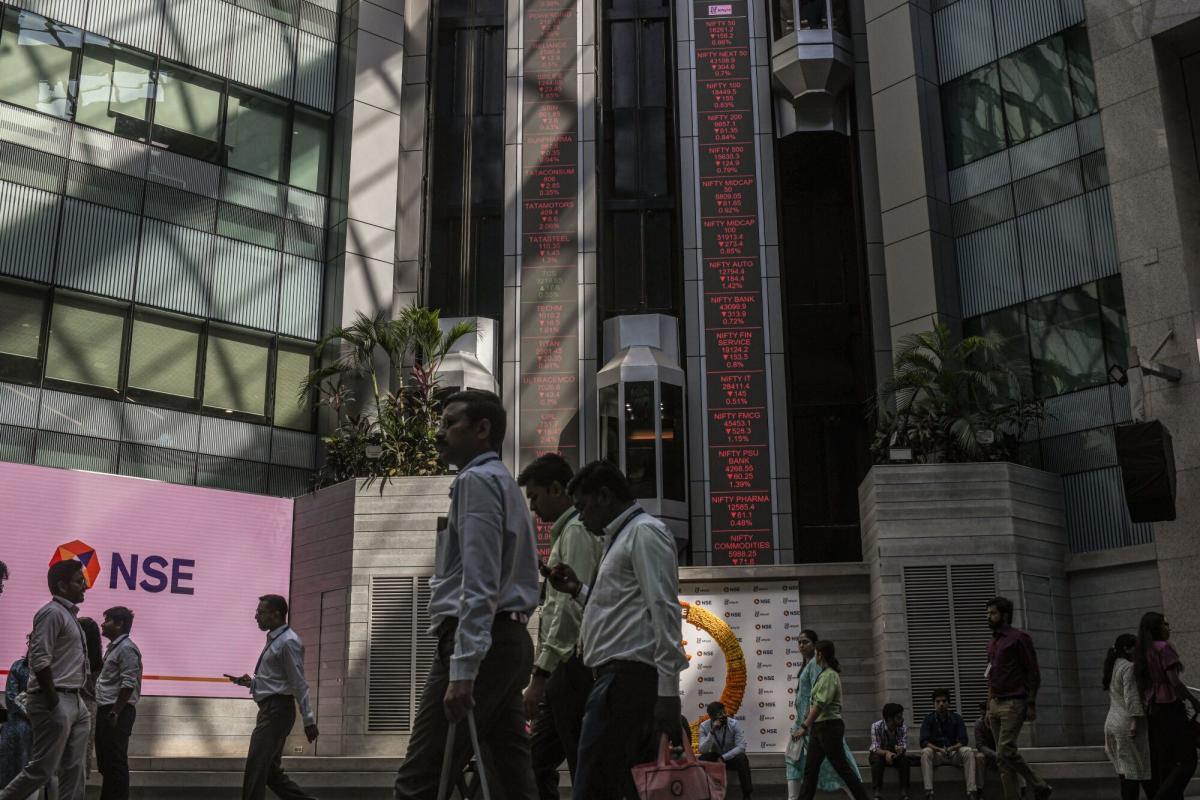Main financial assets discussed: Emerging market stocks, Indian stocks, iShares MSCI India ETF (INDA), iShares MSCI India Small-Cap ETF (SMIN), WisdomTree India Earnings Fund ETF (EPI)
Top 3 key points:
1. Emerging markets have outperformed all other global sectors, including the United States, since the late 1980s.
2. Emerging markets are currently undervalued compared to the U.S. market, making them an attractive investment opportunity.
3. India is a particularly promising emerging market due to its balanced economy, improving standards of living, and strong demographic advantages.
Recommended actions: **Buy** India Small Caps (SMIN) ETF.
India stocks are expected to trade only slightly higher by year-end, with analysts predicting a potential correction due to tightening global financial conditions.
India is positioning itself as an alternative to China in the global supply chain, aiming to become a major manufacturing hub and increase its role in the production of goods, as the world seeks solutions to supply chain disruptions caused by health crises and geopolitical events.
India's sovereign credit rating, currently at the lowest investment grade, should be upgraded due to its status as the fastest-growing economy and its potential to become the third largest economy in the world, according to Madan Sabnavis, Chief Economist at Bank of Baroda. He highlights the importance of a good credit rating and emphasizes that India is an attractive destination for foreign investors. Sabnavis believes India deserves an upgrade to at least an A rating.
For equity investors, the US stock market remains the best option due to Europe's stagflation crisis and a property downturn in China, which have sparked an investor exodus from those regions.
Foreign portfolio investment inflows into the Indian markets slowed down in August due to concerns about rate hikes in the US, resulting in higher bond yields and a stronger dollar, but India remains an attractive market for investors compared to other emerging markets.
India's economic rise is seen as inevitable due to factors such as a consumer boom, context-appropriate innovation, a green transition, a demographic dividend, access to finance, major infrastructure upgrades, policy reforms, geopolitical positioning, and a diaspora dividend, although challenges such as unbalanced growth, unrealized demographic potential, and unrealized ease-of-business and innovation potential still need to be addressed.
China's appeal to multinational corporations remains strong due to its robust domestic market and commitment to opening up its economy, leading to a shift in the quality of foreign investment inflow into the country, particularly in sectors such as trade in services and high-end manufacturing.
India's positive structural factors, including economic growth translation, supply chain dynamics, and a youthful demographic, make it a top investment choice for HSBC and Morgan Stanley.
Summary: High valuations in the US stock market suggest lower future returns, making diversification into other markets such as Japan, India, and Brazil a viable option for investors looking for above-average returns in the next decade.
India's stock market has seen a rally as strong macroeconomic fundamentals and China's economic slowdown keep foreign investors invested in Indian stocks, while a surge in retail investor interest continues to drive the market.
U.S. and European firms are shifting investment away from China to other developing markets, with India receiving the majority of redirected foreign capital, due to concerns over China's business environment, economic recovery, and politics. However, diversification is unlikely to result in a rapid decline in exposure to China as the markets foreign firms are investing in are still heavily reliant on trade and investment with China.
Emerging markets, particularly China, are facing challenges such as weak economic activity, real estate debt issues, regulatory environment, and market concentration, while the U.S. market is performing well; however, emerging markets outside of China, like India, are showing promise due to supply chain diversification, infrastructure investment opportunities, and a pro-business government. Other attractive markets include Taiwan, South Korea, Vietnam, the Philippines, and Indonesia.
With the right reforms, India has the potential to become the next engine of global growth, benefiting from major economic re-alignments caused by China's slowdown and the US diversifying its supply chains. Major corporations are already investing in India, recognizing its potential. However, India needs to overcome challenges such as high tariffs, infrastructure improvements, and regional cooperation to fully realize its manufacturing potential and attract foreign investment.
India's inclusion in JPMorgan's emerging market debt index is expected to lead to billions of dollars of inflows into the country's economy, helping it finance its deficits and raise its standing in international financial markets.
India's inclusion in the emerging market bond index is considered inevitable and comes at a good time for the country, as it will bring in stable dollar inflows and improve the health of the bond market.
India could be one of the fastest-growing markets for JPMorgan in the Asia Pacific region next year, as companies look to diversify their supply chains beyond China and take advantage of India's scale and potential for high-end manufacturing.
Indian banks are becoming increasingly attractive to global investors due to higher credit growth, improved margins, and stable asset quality, with a significant rise in the total market value of foreign institutional investors' holdings in Indian banks. The country's economic growth prospects, solid performance of lenders, and the growth and profitability enabled by digitalization are driving this investor interest.
India's inclusion in JPMorgan's emerging market bond index signals major changes in the global capital markets, boosting capital inflows by $20-25 billion and improving liquidity for Indian assets and the rupee, ultimately attracting more investment. India's rise in the global economy will have significant consequences, positioning it as a nonaligned player and surpassing China in certain measures, while ongoing disputes with Pakistan and China continue to shape its geopolitical landscape.
